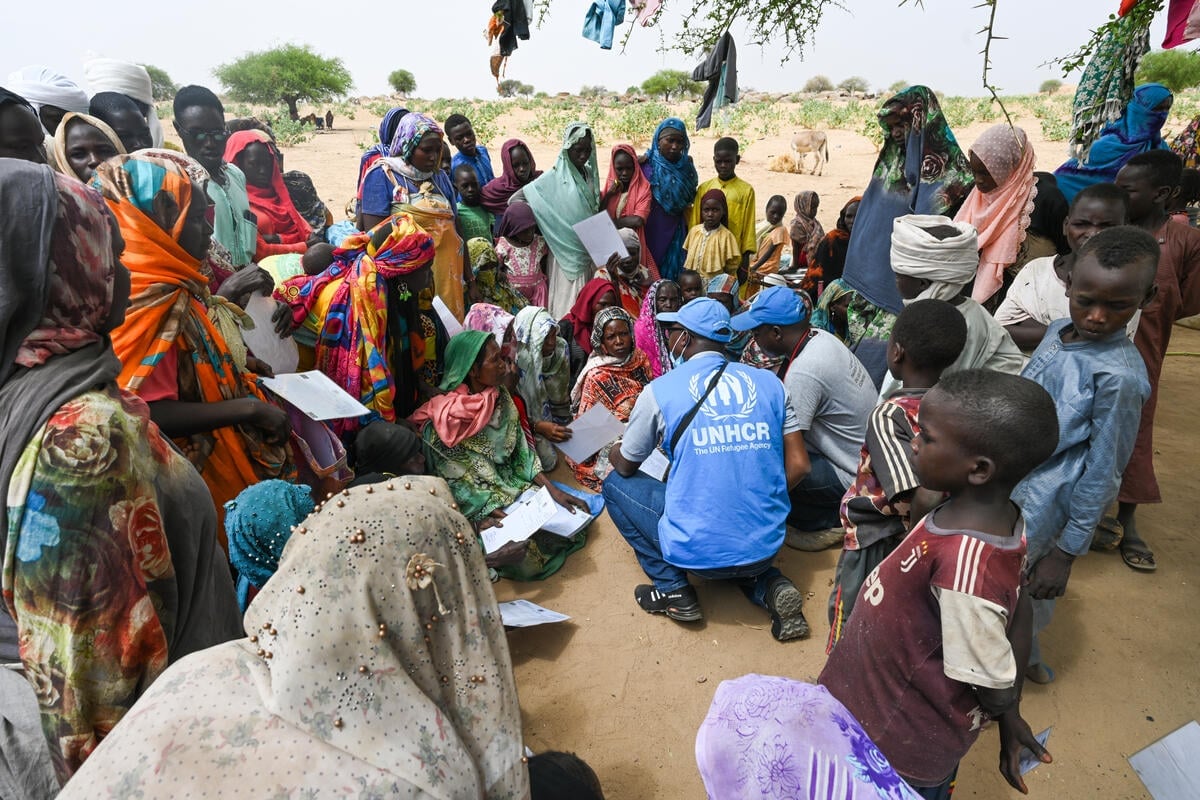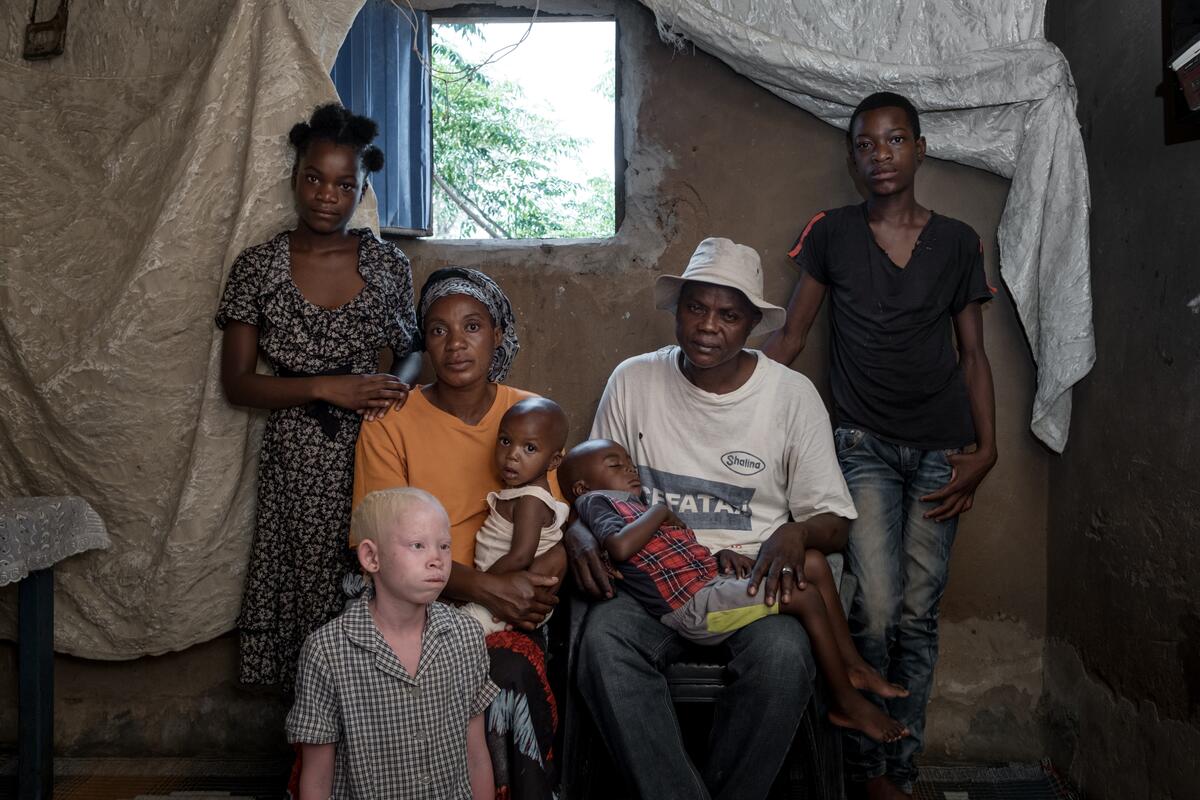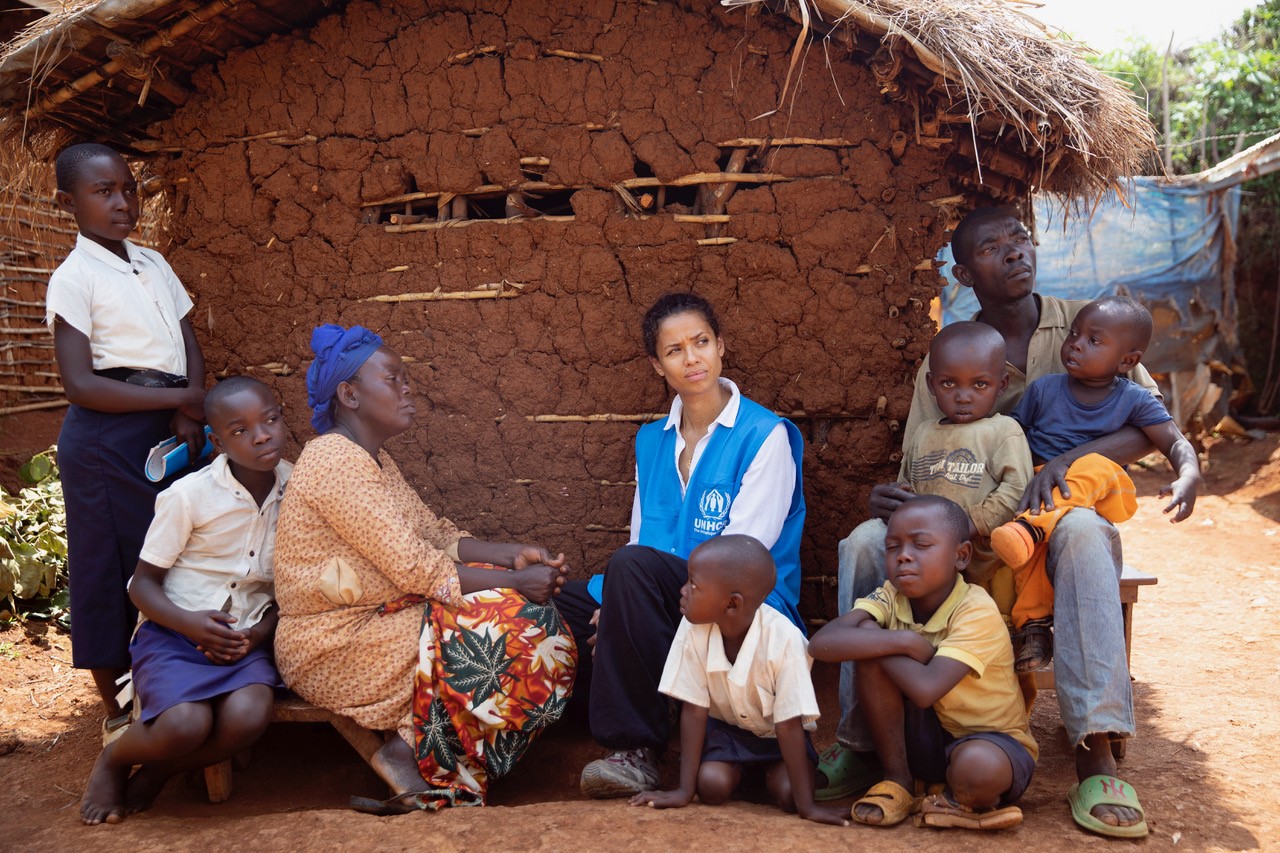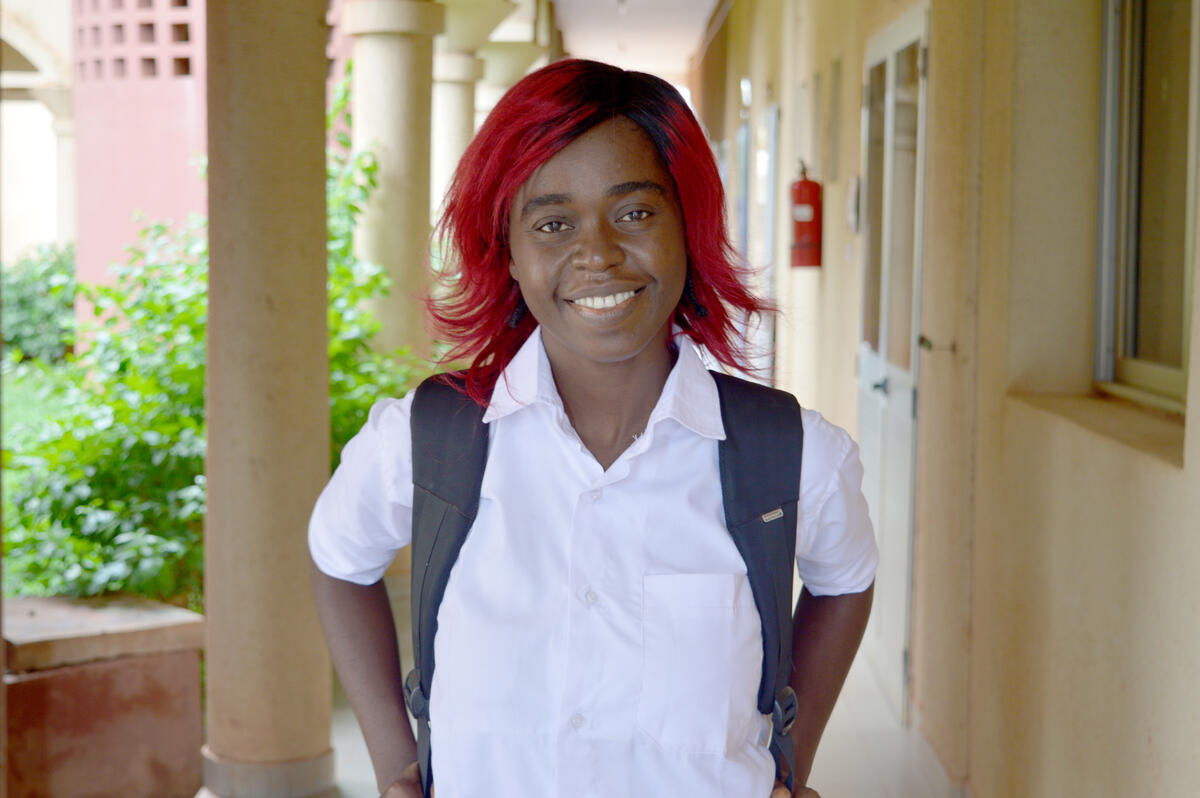Central African Republic refugees turn down call from their country's president to return home
Central African Republic refugees turn down call from their country's president to return home

ZONGO, Democratic Republic of the Congo, Dec. 5 (UNHCR) - Refugees from the Central African Republic have turned down a call by President Ange-Félix Patassé to return home, saying that the necessary conditions before such a repatriation can take place have not yet been met.
The refugees, who were visited by some 20 officials from their country earlier this week to urge them to voluntarily repatriate, are currently in the border town of Zongo in the Democratic Republic of the Congo, where they fled earlier this year to escape an attempted coup and the subsequent civil disturbances in their country.
Over the weekend, President Patassé asked the refugees to return home as soon as possible, and sent the emissaries to Zongo to pass on his message.
In the meantime, UNHCR is preparing to transfer the 23,000 refugees to a new camp within the next few days. The planned move follows the relocation last month of 1,250 former Central African Republic soldiers from Zongo to a camp further inland in an operation designed to maintain the civilian character of refugee sites.
The soldiers also fled during the attempted coup and had settled in Zongo in the same area as the civilians.
Before agreeing to return home, the Central African Republic refugees are asking that their houses be rebuilt and that the looters who destroyed them during the violence that followed the attempted coup be arrested and tried. The refugees, most of whom are civil servants, are also demanding the payment of salary arrears and guarantees for their safety once they return home.
Spokesmen for the refugees said that while they are eager to return home, none of the conditions that would allow them to do so have been met.
According to UNHCR protection standards, those who return must do so voluntarily. In addition, any repatriation would need to be organised within a legal framework involving the governments of both the asylum country and the country of origin, and include security guarantees for the returnees.
UNHCR must also be given monitoring capability so it can supervise the first months of the refugees' reintegration in their country of origin.
The new camp being prepared at Mole is located 45 kilometres south of Zongo, and has an initial capacity for 10,000 people. Work at the camp is progressing rapidly. Water wells have been dug and transit hangars and classrooms completed. The road to the camp is in good condition.
Once at Mole, the refugees will receive a plot of land as well as wood and nails to build their own shelters.









